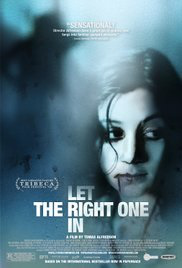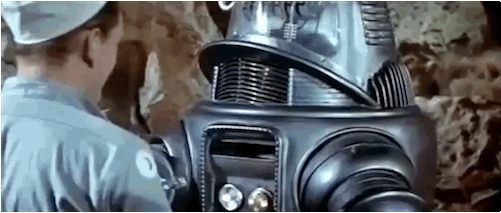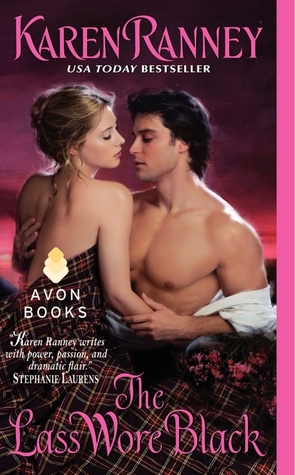Director: Michael Gracey
Stars: Hugh Jackman, Zac Efron, Michelle Williams
If you’re going to make a musical about P.T. Barnum, the mid-19th century’s ‘greatest showman’ and incorrigible humbug merchant, you’d better be prepared to go all out. Modern musicals are curious beasts. Take the feted La La Land from Damien Chazelle, for instance. While the sentiment was there to (re)create something of old Hollywood, a sense of esteemed self-awareness left it caught, delicately and awkwardly, like a butterfly pinched between thumb and forefinger. In aching to stand toe-to-toe with recognised greats, its misgivings and inadequacies became more apparent. There are things to admire in Chazelle’s film, but it didn’t really have the songs, didn’t really have the story and – whisper it – didn’t have the heart.
The Greatest Showman features original songs from some of the musicians who helped Chazelle with La La Land, but the other key writing credit to note here belongs to Bill Condon who helmed last year’s ecstatic live action Beauty And The Beast. That film went all out. Condon didn’t blink and the film was a runaway success because of it. There were no post-modern winks to camera. Condon gave us full-blown Disney theatrics; a heightened level of cinema so divorced from reality to as buoy the fairy tale into the fantastic. So which sensibility has Michael Gracey’s film deferred to? Quite fortunately the latter.
Going all out was the only way to go here, and The Greatest Showman thrives on it’s unbridled abandon. From the very beginning this is a glossy, glittering example of sincere high camp, one that celebrates theatricality, as well it should considering the subject. This collaborative effort aches for Broadway and the West End, is filled with the heart-thumping anticipation of treading the boards back stage, or sitting in the audience waiting for the curtain to rise. It exists in the glimmering, gossamer world of total make belief. And thus you should know, immediately, whether this is something you’re going to enjoy or not.
Hugh Jackman stars as Phineas Taylor Barnum, son of a tailor who bluffs his way into show business when he opens a museum of American curiosities to support his family. When his stuffed attractions fail to convince the general public to part with their precious dollars, he reconfigures his enterprise, hiring self-styled ‘freaks’ and talented performers to provide an altogether more mesmerising and remarkable show. His museum becomes a circus, but in an effort to prove his worth to his wife’s (Michelle Williams) family, Barnum finds himself torn. He longs for the esteem and respect of the highborn and the highbrow, but his sensibilities are as a faker, a salesman and a showman. To his detractors he is little more than a barker at a carny show.
Thus he hires established playwrite Phillip Carlyle (Zac Efron) in the hopes that a man known to the New York social elite will bring him some credibility. Carlyle has connections, and he manages to carry Barnum so far, yet his circus still sets him squarely among the common folk, and his family are finding his torn attention conspicuous.
That’s the gist of this revisionist musical, and there’s a little more to it of course, but it’s all an excuse for some celebratory singing and dancing. Theatre, like all art forms, has such a range of purposes, and The Greatest Showman excels in arguing the value of all manners of expression. Presenting Barnum’s work as a musical is a masterstroke. The musical is among the most derided of the cinematic genres, yet it plays to the very strengths of his circus; it asks the audience to suspend disbelief, to participate in the absurd, promising little beyond the joy of brief and dazzling distractions. People watch musicals over and over again to capture that little bit of exaltation that they offer. They’re as fragile as glass, but just as unique.
As Barnum’s show sits uneasily on the palettes of supposed decency, so Gracey takes on film snobbery. His film comes from the opposite end of the spectrum to so-called highbrow cinema, where the arthouse and surrealist set forge to present naked human truths or explore the boundaries of the form. What The Greatest Showman celebrates is that, regardless of medium, there is something in art everyone. Every endeavour has its place. Our struggles with class and snobbery are self-imposed. There’s as much merit in making someone laugh as making someone think, or cry, or sing.
Jackman is right at home in the middle of all of this. His Barnum plays like a giddy inversion of his turn in The Prestige for Christopher Nolan, shorn of all malice. He has aspirations, but they come from a place of amazement and unchecked ambition. Sure, he feels he has something to prove to his wife Charity and her father, particularly, but this is as important to him as the sheer wonder of his work. He’s as in love with all of this as his audiences are. He’s Peter Pan; having retained a child’s amazement at the world. In the middle of the film he gambles on the talents of a famed European singer, Jenny Kind (Rebecca Ferguson). His expression on seeing her perform tells all. This isn’t a romance of courtship and lovemaking, but of discovery and expression. Efron gets to cover off the more traditional romantic element in a nicely played subplot with trapeze artist Anne Wheeler (Zendaya), their duet together being perhaps Gracey’s greatest hit of all.
Everything is presented as immaculately as you’d expect, from production design through wardrobe and soft-edged effects work. As intimated above, this is by no means a rigorous biopic. All evidence of genuine toil or hardship is expunged from the narrative, skipped by in songs that propel the narrative forward (unlike those of La La Land), sometimes by decades. And the songs are there. You might not know them now, but those that dig this cinematic bon-bon will no doubt learn them through repetition. Similarly, no shade is thrown on Barnum for his loose ethics or the treatment of those he leeches on for financial gain.
No, there’s nothing to hold onto here. It’s a breeze in a sugar storm. But it checks the boxes it’s intending to. It caters to the audience that’ll be drawn to it. And it argues that Barnum’s exploitation of his attractions was perhaps its own form of progressive inclusivity. More than anything though, this is about going all out. Putting on a show. Treading the boards. The Greatest Showman isn’t for everybody, but everything’s for somebody, and that’s great.
Score: 
Advertisements Share this:





